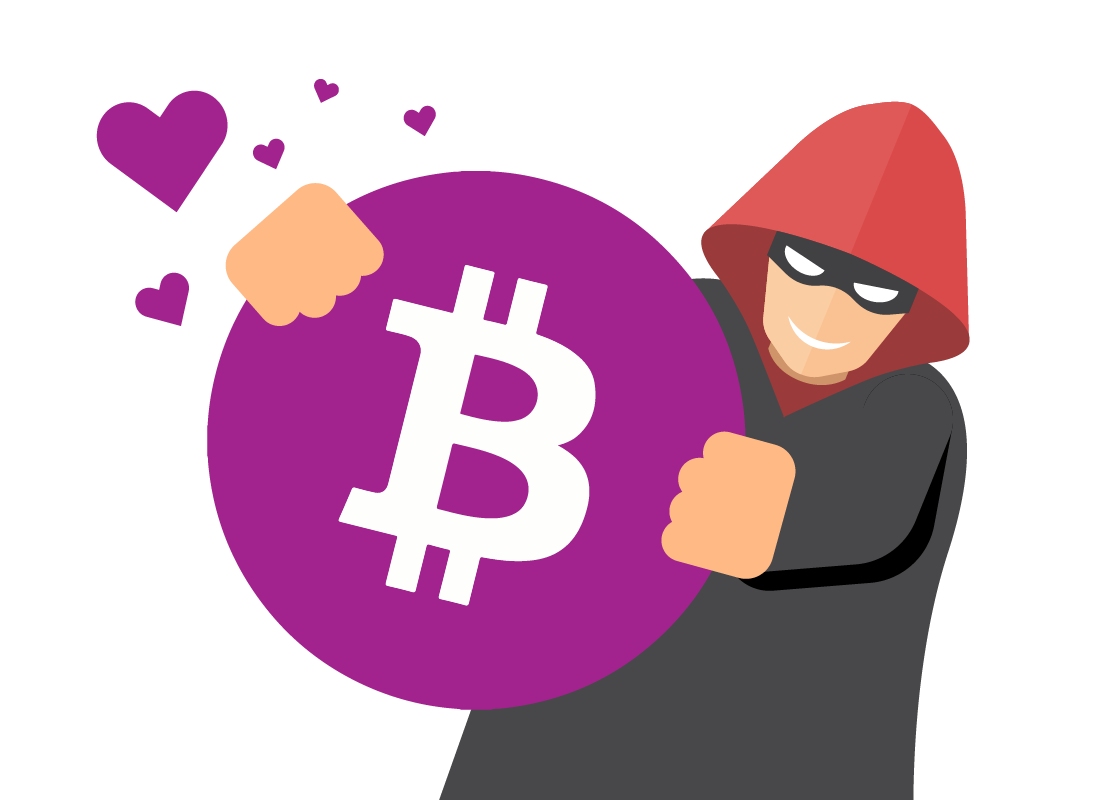Crypto scams
Learn what crypto or cryptocurrency scams are, and how they rely on promises of big returns, similar to other kinds of investment scams.
What is cryptocurrency?
Cryptocurrency, usually just called crypto, is a new form of money that scammers like because once it has been spent or transferred, it’s impossible to reverse or retrieve a payment.
Crypto is often the requested form of payment for other scams, too. When investment opportunities demand crypto-only payment, that’s a good warning sign that you are dealing with a scammer.

What is a crypto scam?
The scammer will offer to purchase and handle crypto on your behalf as part of a fake brokering service. The scam works because crypto is very technical and most people don’t know much about it.
How crypto scams work
Like other investment scams, you might respond to an ad on social media, or be contacted directly by the scammer.
- They will offer an amazing opportunity, and try to get you to move to an encrypted messaging app such as WhatsApp.
- They might try to get you to install special software to manage your crypto.
- You will pay the scammer to purchase crypto and the software will show the price going up.
- The price might crash, or the scammer will stop responding if you try to withdraw any money.
- In reality the scammer hasn’t bought any crypto for you at all, they have just taken your money.
- Sometimes the scammer will use your money (and money from other victims) to pump and dump a cryptocurrency, to make a quick profit.
- Because of the nature of crypto, recovering your money is usually impossible.
How to protect yourself against crypto scams
Crypto scams can be hard to detect and brokers and other crypto services are hard to check up on. Always:
- Check a broker via a Google search of their name with the terms complaint and scam (this is not always reliable)
- Be suspicious of unsolicited calls and emails
- Decline offers from friends, as friends can be scammed and unknowingly recommend a scammer to you
- Don’t install broking software
- Keep your antivirus suite up to date
- Don’t store written passwords on your computer.
Avoid any company that offers to invest in cryptocurrency on your behalf. If you want to get into crypto, you should use a licensed Australian crypto exchange.
What to do if you are scammed
Some crypto scams target people who already own cryptocurrency. For people new to crypto, scammers exploit a person’s lack of knowledge and the lack of regulation around crypto, to trick them into sending money. This money usually can’t be recovered, but you should also act quickly to protect your other finances and your identity.
- Before changing your passwords, uninstall any broking software the scammer had you install, because this software can include the ability to read your keyboard (and your passwords)
- Do a thorough scan using your antivirus suite or install antivirus now if you don’t have it
- Contact your financial institutions to change your passwords and cancel/reissue credit and ATM cards
- See if you can get a payment reversed. This is often not possible but always worth a try
- Change your important passwords such as your main email address and the password/passcode you use to sign into your computer.
When you suspect your online relationship is a scam, cease contact with the scammer immediately. Don’t accuse them, as they may try to quickly steal money from you before you have time to secure your finances.
Crypto scams are new and any information you give will be very valuable in helping limit the activities of these scammers.
- Report scams to the ACCC’s Scamwatch service at www.scamwatch.gov.au/report-a-scam. This web page includes a form you can fill out, and also provides links and information on how to get help
- You can also report the scam as a cybercrime at the Australian government’s cyber.gov.au website.